#louis le juste
Text
read this book (in a fruitless attempt) to better understand the details of the thirty years’ war and the author gets her digs at these people at every chance she gets:
“In the Louvre the King [Louis XIII] lay on his huge bed day after day, but his unhealthy body, which had for the last years never seemed truly alive, was unable to die. The pulse beat obstinately on in the wasted skeleton. Day after day he lay almost motionless, sometimes sinking into troubled sleep, sometimes half-conscious, sometimes speaking, while his wife cried noisily at his bedside.”
“Richelieu, though never popular, had evoked a certain apprehensive admiration. The people did not feel the same about Cardinal Mazarin. The dapper little Sicilian with his petty personal vanities, his childlike ostentation, his delight in craft and cunning, had few impressive qualities. Equally he had not the comprehensive genius of Richelieu; he never understood or managed to control the internal politics of France.”
“Philip IV, having lost both his wife and only son within a few weeks of each other, began, with indecent haste, to seek out a young bride; he was not a very prepossessing husband, old and glum for his forty-odd years, dumbly stupid; as a ruler, a useless idol. He was devoted only to his one remaining child, the scatter-brained little Infanta who was despite the formalities of Madrid and the splendours of Versailles remained through life a foolish, impulsive, perpetually sweet-tempered schoolgirl.”
#'his wife cried noisily at his bedside'#history#french history#spanish history#quotes#i do think it's a well-written and extremely comprehensive book#however#there are too many ppl to keep track of#and many of them either have the same name. similar names. or multiple names/titles#the book is The Thirty Years' War by C.V. Wedgwood#it's from like 1939#which adds an interesting flavor to her perspectives on war i think#shannon says#louis le juste#anne d'autriche#philip iv#cardinal richelieu#cardinal mazarin#c.v. wedgwood
11 notes
·
View notes
Text
guys, it's been years,,, I think I've finally gotten the courage to ask... what the fuck even is the plot of the Vampire Chronicles?
#I've been in the fandom for 5 years#running this blog for a few months#i've read the first three books before promptly giving up (as well as reading other Anne Rice books like Cry to Heaven)#I need to admit that VC to me is purely vibes if someone asked me to explain the plot of anything that happens after IWTV#i simply Would Not Know What To Say lmfao#VC is just vibes to me pure raw unfiltered vibes#if anyone has an actual explanation and wants to ramble to me pls feel free#interview with the vampire#iwtv#the vampire chronicles#vc#anne rice#armand le russe#daniel molloy#lestat de lioncourt#louis de pointe du lac
222 notes
·
View notes
Text
if you're wondering what the big deal is about the louis-philippe sentence in les misérables, it is, in the original french, 760 words long. the subject of the sentence doesn't appear until 95% of the way through, at word #711; the main verb is word #712. the sentence contains 91 commas and 49 semicolons and is almost entirely a list of laudatory adjectival phrases describing the erstwhile king of france. this is perhaps especially notable because les mis is, shall we say, not known for being particularly gung-ho about the monarchy.
this sentence copied and pasted into Word takes up more than one page single-spaced. in the 1800-page folio classique edition, it is fully two and a half of those 1800 pages. that means that les mis is 0.14% this single sentence. more of les mis is made up of this sentence than earth's atmosphere is made up of carbon dioxide (0.04%). if the page count of les mis stayed the same but every sentence was the length of this one, les mis would consist of only 720 sentences total.
incidentally, guess who named hugo a peer of france 17 years before the publication of les mis?
#he also goes on for another six pages after this but by then he has remembered the existence of the full stop#the endnotes say that hugo 'se devait de faire [ce portrait] aussi favorable que possible à la personnalité de l'homme#qui avait favorisé sa carrière' (had to make this portrait as favorable as possible to the character of the man who had favored his career)#in fairness to hugo it's not like louis-philippe was alive to read this. so he wasn't just sucking up to get something out of it#he says at the end of the chapter that this description is 'entirely disinterested'. which like on the one hand i get#bc like i said louis-philippe was not in power and reading this. but otoh victor 'ancien pair de france' hugo u r not exactly unbiased. lol#les mis#lm 4.1.3#i just looked up the english translation and gasp! hapgood turned it into four separate sentences!!!!#so i think y'all who are reading it via les mis letters (which uses hapgood i think?) are gonna miss out on the full experience :/#my posts#linked to#syntax#idk if i got this across but the worst part is that the subject of the sentence - the beginning of the independent clause -#doesn't occur until the very end. so for the first 95% of the sentence you're just waiting for the bass to drop!!!#like reading it out loud you have to raise your pitch at the end of every dependent clause because you haven't gotten to the subject yet#AND THERE ARE SO MANY CLAUSES!! 49 SEMICOLONS PEOPLE!!! FORTY-NINE!!!!#victor hugo would be TERRIBLE as a hype man. he would take so long that the crowd would tear him to pieces with their fingernails#before louis-philippe could come out on stage. and then they'd be so mad at louis-philippe for inspiring him that they'd tear LP apart too#actually i think i'm using hype man wrong. i'm thinking of the guy that gets the crowd hyped up for the main guy before the main guy#makes an appearance. a hype man is the guy who makes interjections during a song. victor hugo would be bad at both of these#like just imagine the announcer at the beginning of a basketball game. and now...your starting lineup...at power forward...#and then he just says the 760-word louis-philippe sentence.#dead. murdered at the hands of the fans. microphone shoved down his trachea.
2K notes
·
View notes
Text
truly fucking incredible btw how they showed claudia's descent (or ascension) into being evil just like lestat. taking entertainment in killing and laughing as her victims die in front of her, she truly is made in his image. to beat lestat you have to become lestat. like mother like daughter. filth teaches filth
#her switching back to calling him uncle les as hes dying as well...aauuugghhhh!!!#her finally acknowledging that she came from him as she shows him that she has finally surpassed him#she is just as he made her. shes everything he wanted louis to be. shes his heir#ohhhh there is just something so so delicious about lestat hating everything about claudia that is just like him#and his refusal to acknowledge that shes anything more than a spoiled brat ended up being his downfall#ALL THE THINGS SHE LEARNED FROM HIM ARE ALL THE THINGS HE HATED IN HER AND THEY ARE ALL THE THINGS THAT DESTROYED HIM#LIKE MOTHER LIKE DAUGHTER!!!!!#iwtv#interview with the vampire#iwtv spoilers#claudia tag
2K notes
·
View notes
Text

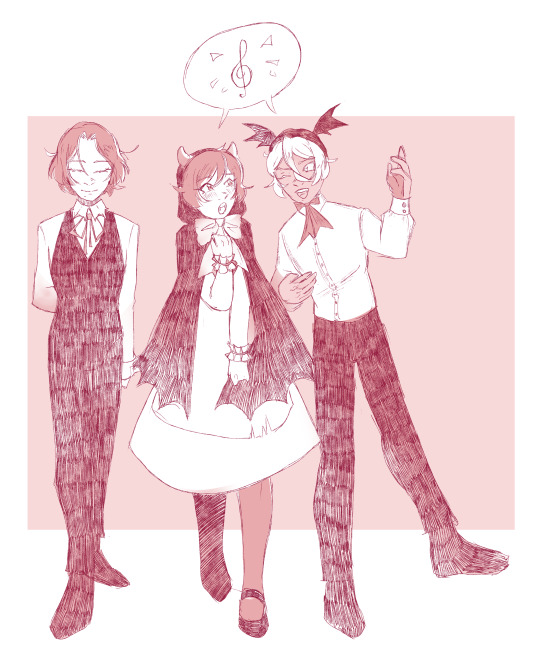
He's too old to caroling.
#Just the sketches I drew during my impromptu Halloween in March#the case of vanitas#vanitas no carte#les memoires de vanitas#vnc#dominique de sade#digital art#koldusek2024#koldusek art#noe archiviste#louis de sade
144 notes
·
View notes
Photo
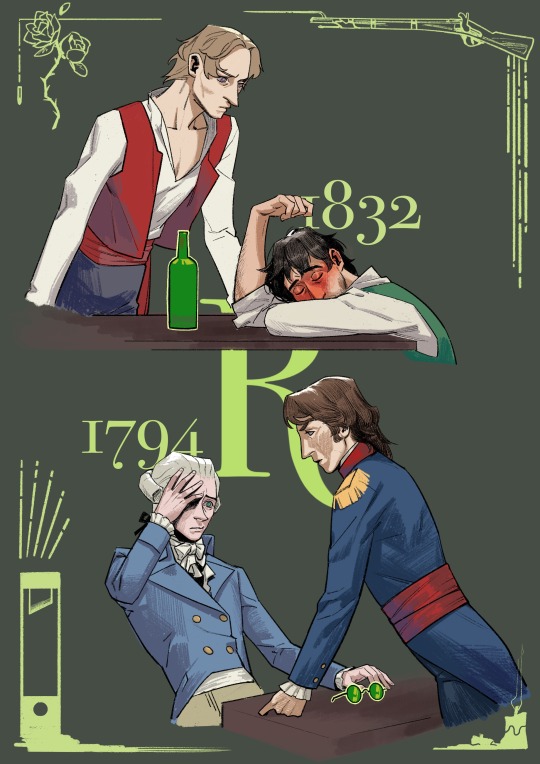
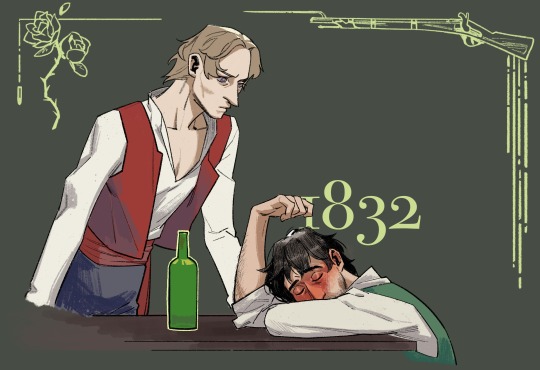
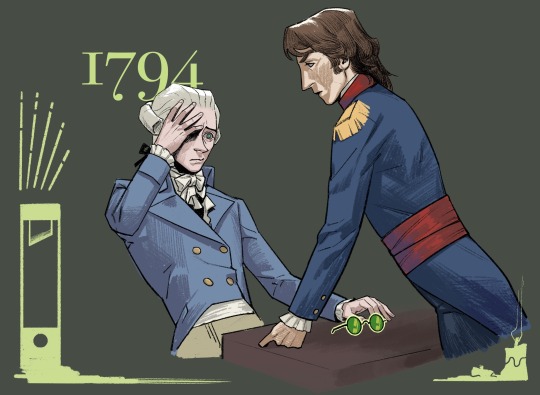
R.
Inspired by that one fic with R being Maximilien’s child what-if
#barricade day#les mis#Les Miserables#enjolras#grantaire#French Revolution#frev#Louis Antoine de Saint-Just#Maximilien Robespierre#enjoltaire#art#my art
292 notes
·
View notes
Text
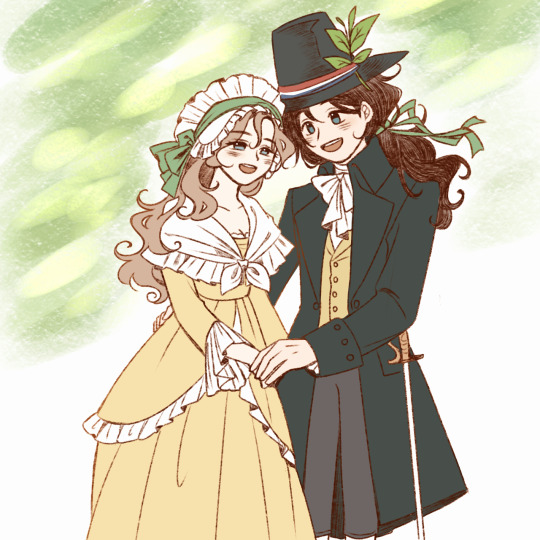
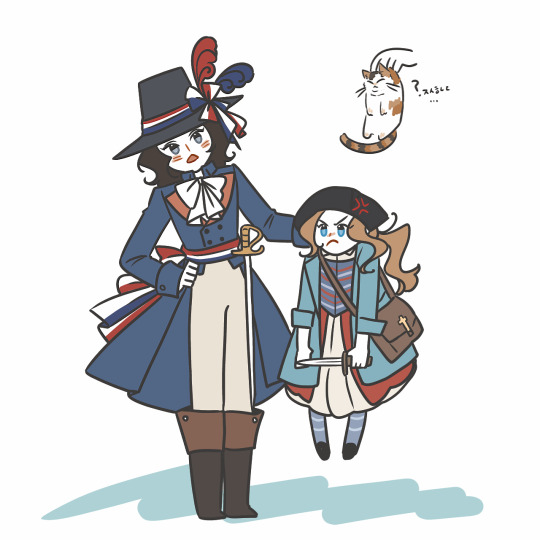
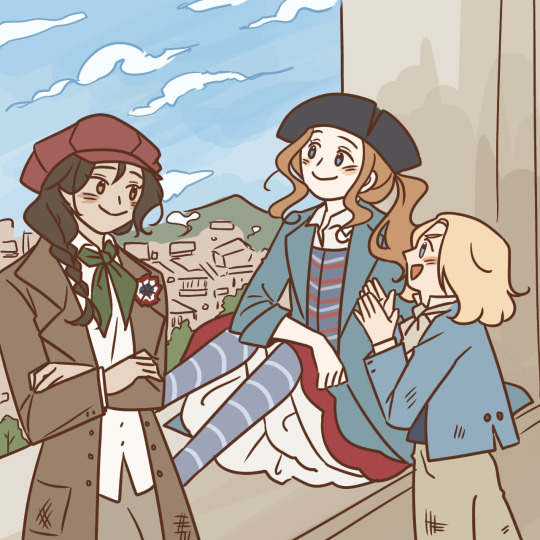
• CROSSOVER •
Les mis × Frev × 1789 les amants de la bastille
#les mis#les miserables#french revolution#1789 les amants de la bastille#camille desmoulins#lucile desmoulins#1789 les amants de la bastille charlotte#eponine#gavroche#barricade boys#louis antoine de saint just
87 notes
·
View notes
Text
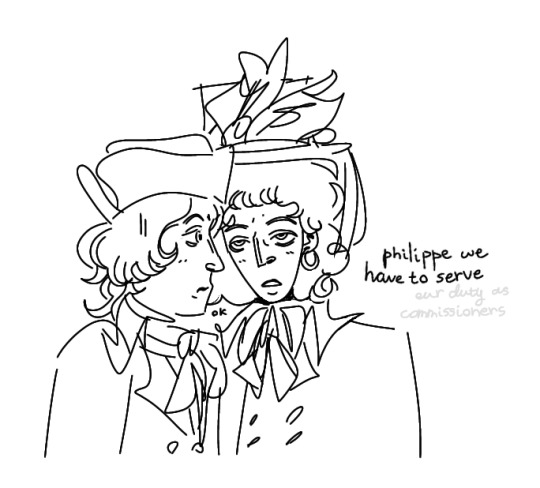
i finally have a day off which means i get to draw Le Bas as a treat
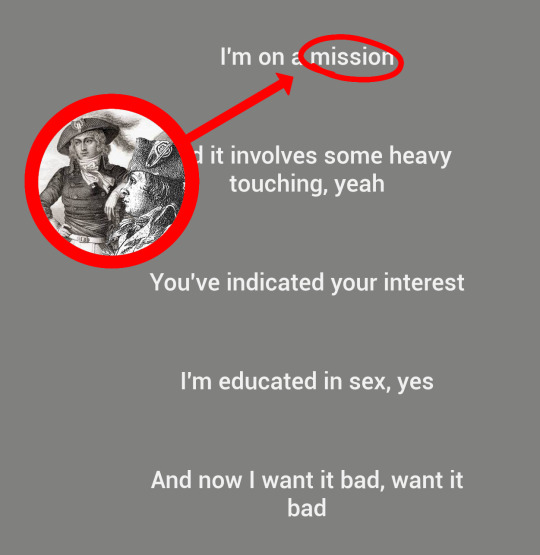
25 notes
·
View notes
Text

#frev#history#french revolution#art#maximilien robespierre#robespierre#saint just#louis antoine de saint just#couthon#le bas#thermidor
129 notes
·
View notes
Text

Original picture
#french revolution#frev#frev memes#almost half of these people are not even from pas-de-calais#but still#so... let's start the list#gracchus babeuf#philippe le bas#philippe lebas#joseph le bon#joseph lebon#camille desmoulins#desmoulins#antoine quentin fouquier-tinville#fouquier-tinville#martial herman#augustin robespierre#charlotte robespierre#maximilien robespierre#robespierre#louis antoine saint just#saint just#saint-just
20 notes
·
View notes
Text
Veronica and Antoine de Sade. I want to fully love y’all but you gotta stop disrespecting my stunning talented jaw-dropping glorious queen okay. You are blessed to have THE Dominique de Sade as a sister, count your blessings 😑
#anime#the case study of vanitas#les memoires de vanitas#jun mochizuki#vanitas no carte#And don’t come at me with some oh it’s just sibling feuds Veronica deadass said perhaps Louis should’ve lived instead#that he might be less of a failure than you#and Antoine don’t even acknowledge her at all#vnc#shit pissed me off fr#Can’t wait for Domi to hit them with her growth#and an uppercut#my girl deserves better#manga
21 notes
·
View notes
Text
Abbe Proyart talking shit about his former students compilation
(With the exception of student Robespierre, who he spoke so much shit about you can make a whole post only about it)
Camille Desmoulins, Robespierre's warmest friend and most ardent advocate, was the son of a Lieutenant-General of the Bailliage of Guise in Picardy. Appointed as scholar by the Chapter of Laon at the College of Louis-le-Grand, he completed his studies, if not with distinction, at least with some success. Although from then on he wrote his scholastic compositions well, he spoke very heavily and stammered in speech. He had an ugly and repulsive exterior, a black complexion, and something sinister about his eyes. He had nevertheless announced in his early youth the double emulation of work and virtue; but, disturbed in his higher classes by vicious comrades, he abjured piety, and soon showed himself a more bitter enemy than even those who had driven him away from it. From then on, a muddled spirit, surly and eloquent, he made himself odious to all his fellow students, and no longer had a single friend among them. We then saw him, son of nature and ungrateful disciple, displaying all the feelings of a bad heart. He made his debut at the bar with a plea against his father, whom he pretended to oblige to furnish him in Paris with an interview which exceeded his faculties. He never forgave his Masters for the efforts they had made to correct his budding vices. In the time of the Revolution, he was still cruelly resentful of one of them, on the occasion of a close encounter fifteen years earlier. “I will never forgive him, he said, for having told me one day that I would mount the scaffold.” However, if the horoscope wasn’t flattering, it was nonetheless verified. We shall see later how, still believing himself to be the friend of Robespierre, he was rewarded for his revolutionary labors by his friend.
La vie et les crimes de Robespierre, surnommé Le Tyran, depuis sa naissamce jusqu’à sa mort(1795) by Le Blond de Neuvéglise (abbé Proyart), page 93
Fréron, in his youth, showed a gloomy and defimulated character, especially near his masters. He announced rather few talents, and no will to cultivate them; he was also cited as a rare example when speaking of laziness and indolence. He was one of those indifferent to religion to whom justice is done by always suspecting their morals. Coming out from the college, he walked his impoverished existence for a long time on the pavement of the Capital, a burden equally incumbent upon both his family and Abbé Royou, his protector and brother of the estimable Madame Fréron.
Ibid, page 90
Duport-du Tertre, born in Paris, of a not very wealthy family, after having done fairly good studies at the College of Louis-le-Grand, became a lawyer, and got a certain reputation, above all, for probity and justice. He was of a gentle and honest character, although a little cold. He loved work and solitude. His conduct at the College had always been good; but of a wisdom more philosophical than religious. He was not born to be a scoundrel, and it cannot be said that he was; but he had not enough religion to cling to, in a slippery step, to the great principles which it enshrines, and he abandoned them. As Constitutional Minister, he tried to serve the Constitution and the King; and, without doing anything useful for the King or for the Constitution, he could not escape the guillotine. It had been less by any particular affection than at the request of his old college comrades whom Duport-du Tertre had endeavored to make known to Robespierre, whom he knew little of himself. Robespierre, in return for the disinterested zeal he had shown him on his arrival in Paris, worked harder than any other Jacobin to make him suspect and determine his execution.
Ibid, page 85-86
Le Brun, known in his youth under the name of Abbé Tondu, was from Noyon. Provided by the Chapter of this City with a scholarship assigned to young clerics, he found himself a contemporary of Robespierre at the College of Louis-le-Grand. He had made less of a sensation than him in his humanities, but showed more talent in philosophy. He then bore an extraordinary depth of timidity, which he retained something of his whole life. He was one of those soft and easy characters who, having neither the boldness of crime nor the courage of virtue, become what circumstances and societies that surround them make them into. The Abbé Tondu, who liked neither his estate nor his name, left both at the same time, and called himself Le Brun, after his mother. Leaving the college, he obtained at the Observatory one of the Places paid by the King to young men who had a marked inclination for Mathematics. The bad companies having thrown him into licentiousness, he pledged himself to it. […] The tottering Minister tried in vain to rely on his old liaisons with Robespierre: Robespierre no longer knew as a friend the one who could also have been friend of a man whose pride had always revolted his own. Le Brun did not cause the death of the King; but, like Dumouriez, he had the cowardice to consent to it; and, like him, he truly became its accomplice, while doing nothing of all that he ought to have done to prevent it, or to provoke vengeance.
Ibid, page 87-88
Noël, born under the name Dumouchel to poor parents, had received, like Robespierre, the gratuitous education of the poor. Student first at the College des Grassins, then at that of Louis-le-Grand; after rather brilliant successes in the distribution of the University Prizes, he was made quarter master, and then professor, at the College of Louis-le-Grand. This sudden passage, from extreme poverty to the last term of ambition among the young masters of the university, turned his head. He had little religion, he became impious. At the beginning of the Revolution, his sentiments, expressed in a journal of which he had made himself the editor, earned him a post as clerk in the war office, and then a secret mission on the part of the Jacobins in a foreign court. Friend of Camille Desmoulins, the latter had introduced him to Robespierre when he arrived in Paris for the Estates-General. Robespierre, although welcomed and celebrated by Noël, had conceived against him a fund of aversion, because he had obtained more constant successes than him at the University, and because Camille Desmoulins never ceased to exalt his talents. He spared him at first as a proponent useful to his views, then fell out with him, and then lost him as soon as he found the occasion.
Ibid, page 86-87
It is again from this school that came two low servants of these man-tigers, and the worthy adjudans of their villainy: the name of one was Sijas, that of the other Pilot. Sijas had obtained, from his college comrade Robespierre, the employment of confidence of overseeing the massacres of the guillotine in Paris; and Pilot, exercising the same Commission in Lyon, wrote to Robespierre that the pleasure of seeing the Lyonnais having their throats cut restored his health.
Louis XVI détrôné d’être Roi, ou tableau des causes de la Révolution française et de l’ébranlement de tous les trônes (1803) by Abbé Proyart, cited in Le collège Louis-le-Grand, séminaire de la Révolution (1913) by H. Monin.
And some of his fellow teachers too…
None of his masters contributed so much to the growth of the republican virus fermenting in his (Robespierre’s) soul than his Professor of Rhetoric. An enthusiastic admirer of the heroes of ancient Rome, M. Hérivaux, nicknamed The Roman by his students, thought that Robespierre’s personality had a strong Roman physiognomy. He praised him, cajoled him unceasingly, sometimes even congratulated him very seriously on this precious similarity. Robespierre, no less seriously, favored compliments, and was grateful to bear the soul of a Roman, be it the atrocious soul of a parricidal Brutus, or that of a conspiratorial Catiline.
La vie et les crimes de Robespierre… (1795) page 46-47
One day, however, a prefect, suddenly opening a door, finds him (Robespierre) on the commode reading a very nasty pamphlet. Caught in flagrante delicto, Robespierre thought himself lost; and, forgetting his natural pride, falls at the feet of the Arbiter of his fate and comes down to the humblest supplications. The Master with whom he had to deal was neither inflexible nor fervent in Morale. He was a man who had been heard more than once to exclaim among the young people: "Long live liberty, my friends: far from us the hypocrisy.” It was the Abbé Audrein, who since deserved, by his apostasy, to become the collegue of Robespierre in the Assembly of Factious, where he still sits. With such a judge, the affair of the bad book was civilized without difficulty, and did not even come to the knowledge of the other Masters of the House.
Ibid, page 37-38
Dumouchel, son of a poor Peasant from Picardy, would not have found within his family any resource for his education: the Sanctuary and the charity of the Faithful paid all the expense. Scholar of the Community of Ste. Barbe, he entered the College of Louis-le-Grand in quality of a quarter master. He fortified himself to go and teach Rhetoric at Rhodez, from where he was called back to Paris to occupy a chair at the College de la Marche. The Abbé Royou, to whom he paid court, had employed him, for a time, for the drafting of certain unimportant articles of his journal, which he had no leisure to deal with himself. A fairly ritual appearance, a supple character, a lot of talk, a little literature, and many more ambitious pretensions had given Dumouchel a certain reputation among that swarm of deplorable subjects which filled the Colleges of Paris; and, by their votes, he found himself Rector of the University at the time of the holding of the Estates-General. Hiding his unbridled ambition and his irreligion under the mask of the most complete devotion to the respectable Archbishop of this Capital, he united the voices of the Clergy for the Deputation. Scarcely had the Hypocrite been in possession of the title he aspired to, than, abandoning the sacred interests which had been entrusted to him, he formed an alliance with Robespierre, whom he at first advocated, and of whom he was later advocated, so much so that the Jacobins of Paris, judging him worthy of the Episcopat, sent his name to the Club of the town of Nismes, with the injunction to make the subject known to the electors of the department, as the one who suited them and whom they should name. All the Catholic Electors, with the exception of two, having refused to cooperate in the crime of an intrusion by Eve that the Protestant Electors, less delicate, assembled, gave their votes to the one whom the Jacobins had designated for them; and Dumouchel, proclaimed Constitutionally Catholic Bishop that, by fifteen Electors only, of which thirteen were Protestants, said goodbye to his friend Robespierre, and went to install himself in the Episcopal Palace of Nismes, which soon, as we know, was defiled by the most scandalous Scenes.
Ibid, page 83-85
#spontaneously i’d say teachers telling students they’re going to get executed is a bit more serious than students being too ungodly#though that might just be me#really sounds like something camille would get told after having gotten on the nerves on a teacher though so i bet it’s true#just as much as i bet proyart was the master telling him#abbé proyart#robespierre#desmoulins#fréron#louis-le-grand#frev#frev compilation
38 notes
·
View notes
Text
Louis XIII and his cooking adventures 🍴🥞
When it comes to our Louis XIII cult, I often refer to the king's iconic omelettes, but what about his other stuff? For example, he really loved sweets (like beignets or jams), but could he also cook them? The answer is YES, and that's not even all yet!
Louis was a curious child who's head was already filled with various interests and cooking became one of them when he was only ten years old at the time (which is quite unusual for a king). First ever case of the king cooking was recorded on february 11th of 1611, when he was preparing milk soups for the Duchess of Guise / Catherine of Cleves. So milk soup, most likely, could be Louis' very first dish made by himself!
Of course many kids have a sweet tooth and our precious omelette king was not an exception which I guess is why he started to learn how to cook mostly from recipes of sweets. Also, take a shot every time I say "sweets" or "cooking" (don't..) 🕊️
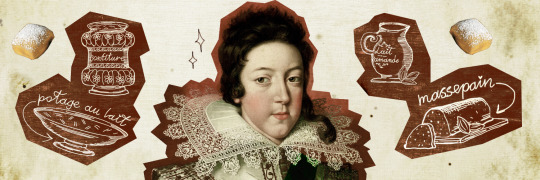
So, among 17th century royal sw- *ahem* DESSERTS we had in our menu – a jam, quince jelly, beignets (basically french donuts) and marzipans. In a well-known, among many of y'all Louis stalkers, journal of his doctor Jean Héroard I found some clear evidence of Louis XIII cooking some of these himself, so here it is feat. me periodically panicking over my own translation because my half-french friend is too busy atm and I don’t wanna bother them:
June 6th, 1611 — «He walks through the corridor from the study to the paneled gallery where he had an oven for making jams, he is amused to see how it's done.» I know it's not exactly him cooking, but I just wanted to leave it here :")
October 15th, 1612 — «Madame comes to see him; he has fun making jam with Mademoiselle de Vendôme»
January 29th, 1613 — «He often has fun making almond milk and marzipans at Madame's house.»
March 6th, 1615 — «It was very cold; he goes to the kitchen, makes omelettes, beignets, fried eggs; it was he who made them and ate a little of that he tasted.» Pretty sure the last few words could be translated better because it's always rather my terrible french or a little confusing way of Héroard's writing, so feel free to correct me.
February 3rd, 1616 — «He is preparing a small snack of dry jam for the queen, who must come to him at two o'clock. After going back to bed, he happily forms various battalions of his little silver men.»
February 5th, 1622 — «He leaves Saint-Germain, goes to Pontoise, where he enjoys making and eating beignets; while dining at Cormeille, he suddenly goes to the goblet in which he makes little cream puffs.» The original text says «petits choux au lait» and I have no idea what could that exactly be, but it seems like some sort of little éclair-like buns made of milk? Little cream puffs?? Maybe by «choux au lait» Jean meant «choux à la crème» which were invented back in 1540 in France.
I know you've been waiting for the quince jelly too, but unfortunately I couldn't find anything about the jelly :c Though, judging by what we've got here It's still quite possible Louis could cook quince jelly as well, hmm... Anyways, if you know something I don't know of the jelly mystery, hit me up!
In the future, this great love for desserts will be inherited by his son Philippe I, Duke of Orléans (brother of Louis XIV), who is also a very interesting character in history!!
In conclusion I must say that Louis not only had a sweet tooth, but also a big love for trying out different things, all this curiosity and pure excitement, even when it comes to something so simple and familiar like food, will never ever stop to fascinate me :"D
Btw speaking about Louis 'trying out different things', I of course still have a lot to share on this as well! Stay tuned and have a good day/night 💘💘💘
#I can't believe I wasted more time on the picture than the post itself#But at least now I can go make more Louis content :“”D#In my next post I will most likely cover something that is not food because he had A LOT of other talents obviously hahahaah#Honestly I could talk about him 24/7.... I just can't always be online to flood you with all this :“(#17th century#louis xiii#history of food#louis xiii le juste#king louis xiii
18 notes
·
View notes
Text
aria and louis NEED to release the playlist they made for werner and marie. THEY NEED TO IM NEVER GOING TO SLEEP PEACEFULLY UNTIL THEY DO, CAN YOU IMAGINE THAT
#they just can’t drop that info there and leave it#now i need them#I NEED TO KNOW IF ARIA INCLUDED TAYLOR OMG#and don’t even get me started on louis omg werner is gonna be an indie#all the light we cannot see#louis hofmann#aria mia loberti#werner pfennig#marie laure le blanc
24 notes
·
View notes
Text
These are the times that I wish I was better at drawing, but here is this.
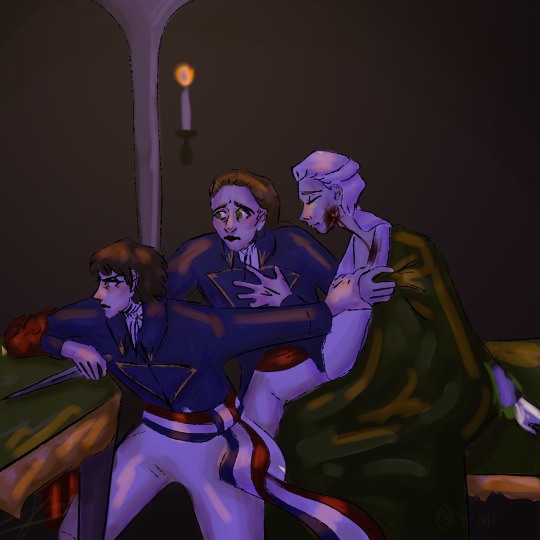
Saint-Just, Le Bas and Robespierre Thermidor sadness once again.
Inspired by the painting “Courage, Anxiety and Despair: Watching the Battle” by James Sant (pictured below)

When I tell you the immense love and admiration I have for this painting, it can not be measured.
#frev#french revolution#claws out for the main 5#claws out for robespierre#robespierre protection squad#maximilien robespierre#robespierre#louis antoine de saint just#saint just#philippe le bas#le bas#frev art#thermidor#courage anxiety and despair: watching the battle
75 notes
·
View notes
Text
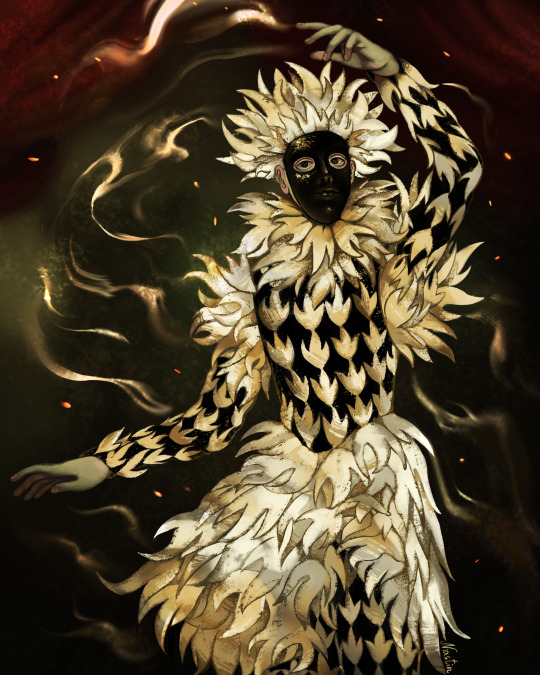
Louis XIII as the demon of fire (a. k. a. one of his most iconic looks), extra imressive for its time! The costume was expected to resemble fire, so it was made from enamel blades to make the costume reflect all the candles in the hall during the king's dance.
#my art#btw that was literally one of the most epic moments in the history of french ballet and everyone just decided to ignore it???#currently writing a big post on this for my omelette bloggo#not too big 'cause my french sucks and I get louis xiii info mostly from french sources but still#I'll let you guys know when i'm done and where to read that!!#17th century#baroque#artists on tumblr#louis xiii#king louis xiii#louis xiii le juste#ballet de la delivrance de renaud
15 notes
·
View notes